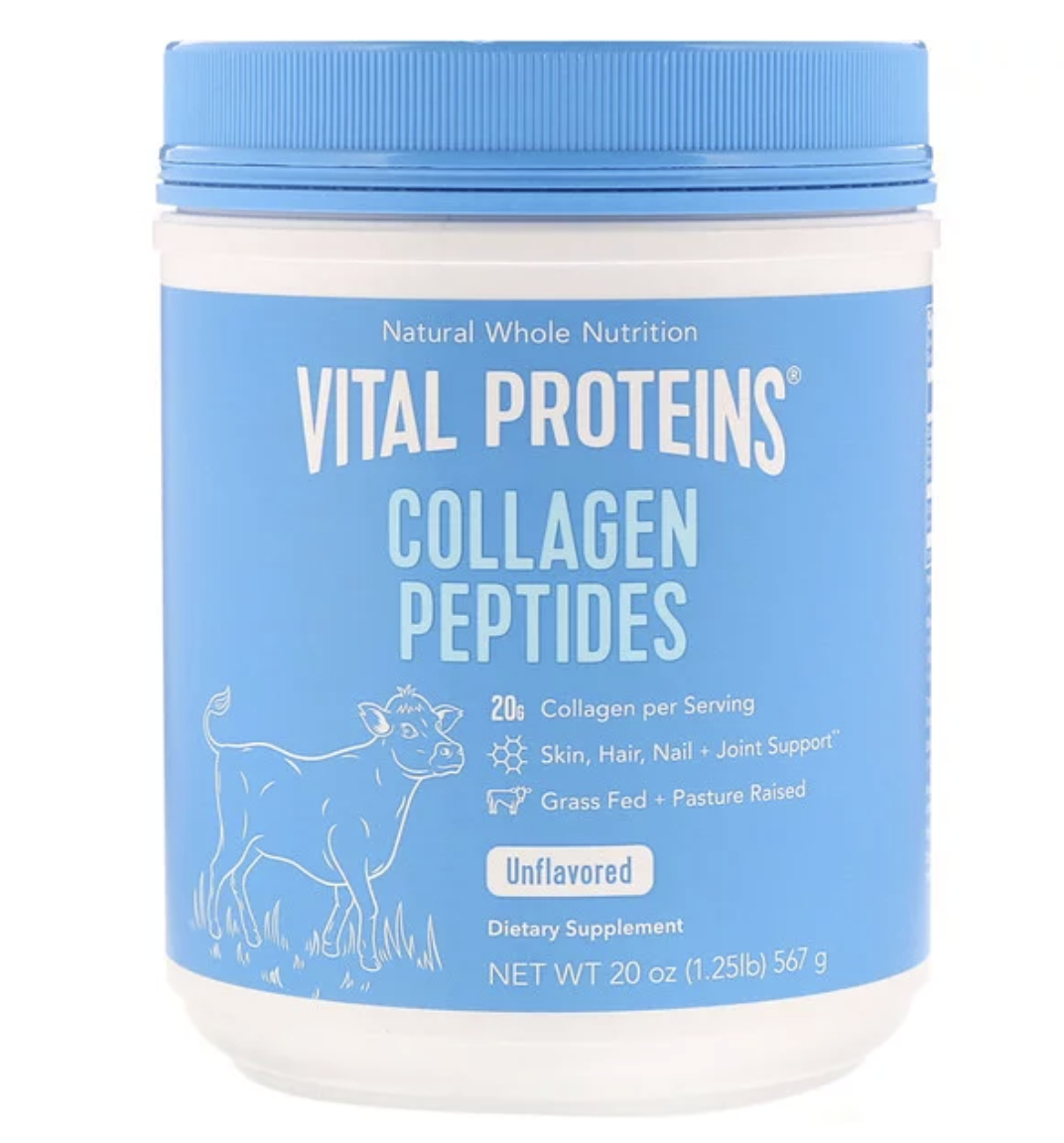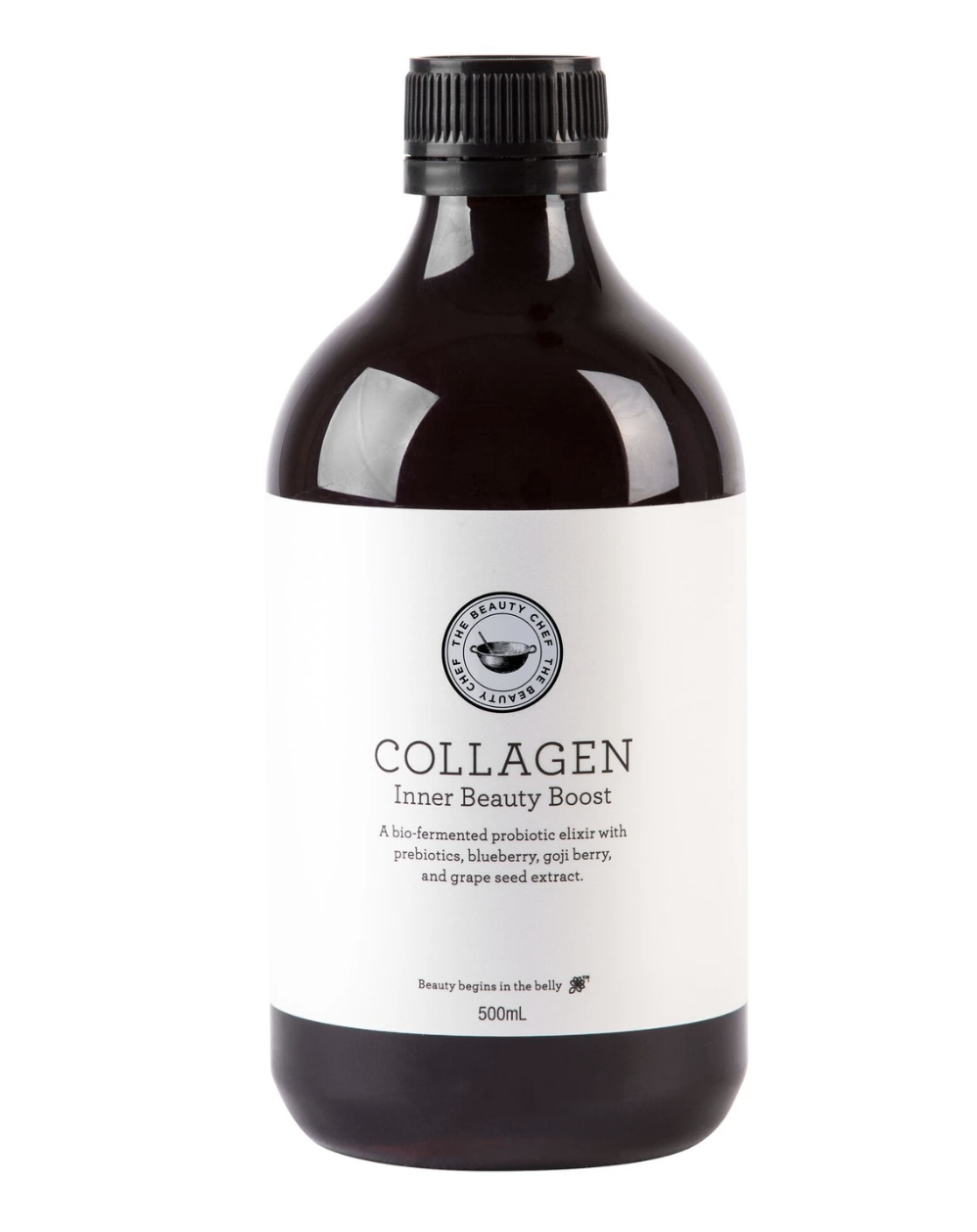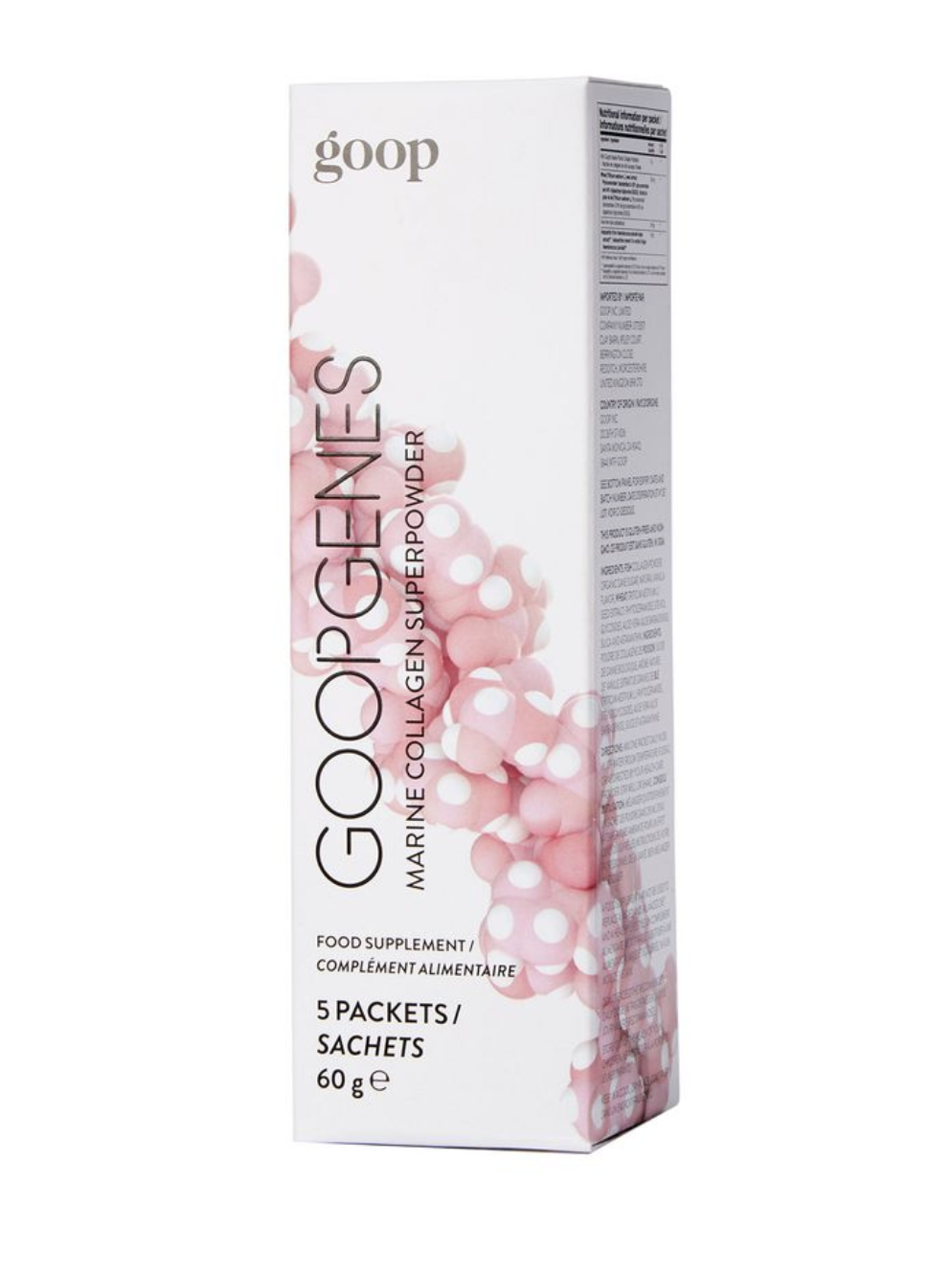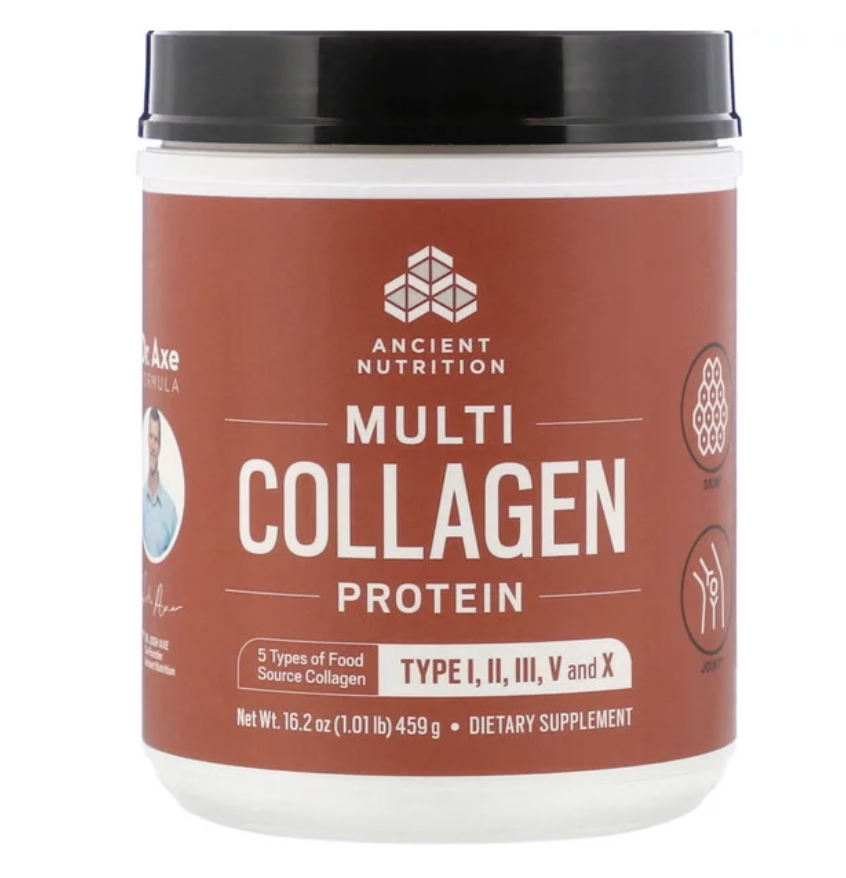Collagen: if you’re not taking it yet, you probably have a friend who swears by it. It’s one of the fastest-growing products in the realm of ingestible beauty, with devotees touting benefits such as bouncy skin, healthier hair, and stronger nails. It’s more approachable than retinol, and more exciting than hyaluronic acid – making it the perfect entry-level skincare supplement for many of us just dipping our toes into the anti-aging world.
But what is collagen, exactly? In short, it’s a protein – in fact, it’s the most abundant protein in the human body. It provides structure and elasticity within our body, allowing us to move smoothly. Collagen’s current major claim to fame, however, is as a skin booster. When we have plenty of it, it makes our skin look plump, bright, and bouncy – the perfect no-makeup-makeup, glow, courtesy of Mother Nature.
While our bodies produce collagen naturally, this process slows down significantly as we age. In fact, from our early 20s, we produce 1% less collagen every year – which can contribute to the onset of fine lines and wrinkles. Other lifestyle factors, such as unprotected sun exposure, smoking, or a poor diet, can further stall collagen production. So for a skincare-savvy woman eager to retain youthful skin, there’s one obvious solution: supplementation. With collagen-based products popping up everywhere, it’s hardly surprising that market sales increased by 751% in 2018. Featured in countless #shelfies and smoothie recipes, collagen has been heralded as an antidote to aging.
But outside the hype, what does the evidence say? It’s no secret that the world of wellness can be tricky to navigate sometimes, so here’s a beginner-friendly guide to collagen supplementation, as well as things to avoid when choosing a product.
Collagen-Infused Skincare
Although a lush serum pumped up with the addition of collagen sounds like a dream, the reality isn’t quite so enticing. Collagen applied in skin care products will have no effect on the skin at all – the molecules are simply much too large to be absorbed by our bodies. This isn’t to say your current moisturizer is useless, though. It could still be doing great things for your skin when it comes to hydration! But for collagen’s plumping benefits, we should look elsewhere.
Bone Broth for Gut Health
Gut health is a hot topic in recent years, and for good reason. A healthy gut – which is a gut full of diverse bacteria – can boost the immune system, increase energy levels, and even improve cognitive function. Collagen-rich foods such as bone broth are often promoted as beneficial for maintaining gut health, primarily due to the way collagen is consumed by our bodies. When ingested, collagen breaks down into amino acids, and these amino acids have been suggested to help with gut health – however, there really isn’t evidence to validate this. Another problem with bone broth is that it can be incredibly difficult to estimate the amount of collagen present since this can differ widely between brands. But as to what has been shown to help with gut health? A diet is rich in plant-based whole foods, fermented foods, and probiotics.
Collagen-Strengthened Hair, Skin, and Nails
Ding ding ding – we have a winner! This is the area where collagen shines – and in particular, ingestible collagen powders. While historically, most of the research around collagen has focused on joint health, there’s a growing body of evidence suggesting it can have some serious benefits for our skin, hair, and nails. When it comes to collagen, there are luckily no major side effects – only benefits! It’s not an overnight fix, though: about 6 weeks of continuous consumption is necessary to see any visible changes. Although it’s tricky to estimate collagen content in foods such as bone broth, powdered formulas make it simple, with grams per serve written on the packaging.
Collagen powders are also incredibly versatile: stir a scoop through your morning oatmeal, add it to your smoothie, or add it to your latte. They couldn’t be easier to use – and whether you prefer natural or flavored, there’s an option for everyone. While animal-based collagen is the most widely available, there are now a growing number of plant-based options on the market. See below for some of our top collagen picks!
Our Favorite Collagen Supplements
1) Vital Proteins Unflavored Collagen Peptides ($ 19.99)
Vital Protein’s Collagen Peptides is easily the most versatile item in their lineup, as it dissolves easily into hot and cold liquids and has no distinguishable flavor. One of the most popular ways Vital Proteins fans use the OG collagen powder is by scooping and stirring it into their morning coffee.
2) The Beauty Chef Collagen Inner Beauty Boost ($ 49.99)
To give you a daily shot of extra nutritional support, The Beauty Chef’s Collagen Inner Beauty Boost is a delicious organic, bio-fermented probiotic concentrate designed to increase the skin’s production of collagen and promote a radiant, naturally plumped complexion from the inside out.
3) Goop GOOPGENES ($ 95.00)
Support the appearance of smooth, firm, hydrated skin from the inside out with a combination of collagen, ceramides, and astaxanthin, three potent ingredients shown to improve skin moisture, elasticity, and texture.
4) Ancient Nutrition Multi Collagen Protein Powder ($ 39.99)
Ancient Nutrition combines its expertise and experience to make each high-quality Ancient Nutrition product. This is more than a business for them. It’s personal. For your nails, gut, skin, and health.




